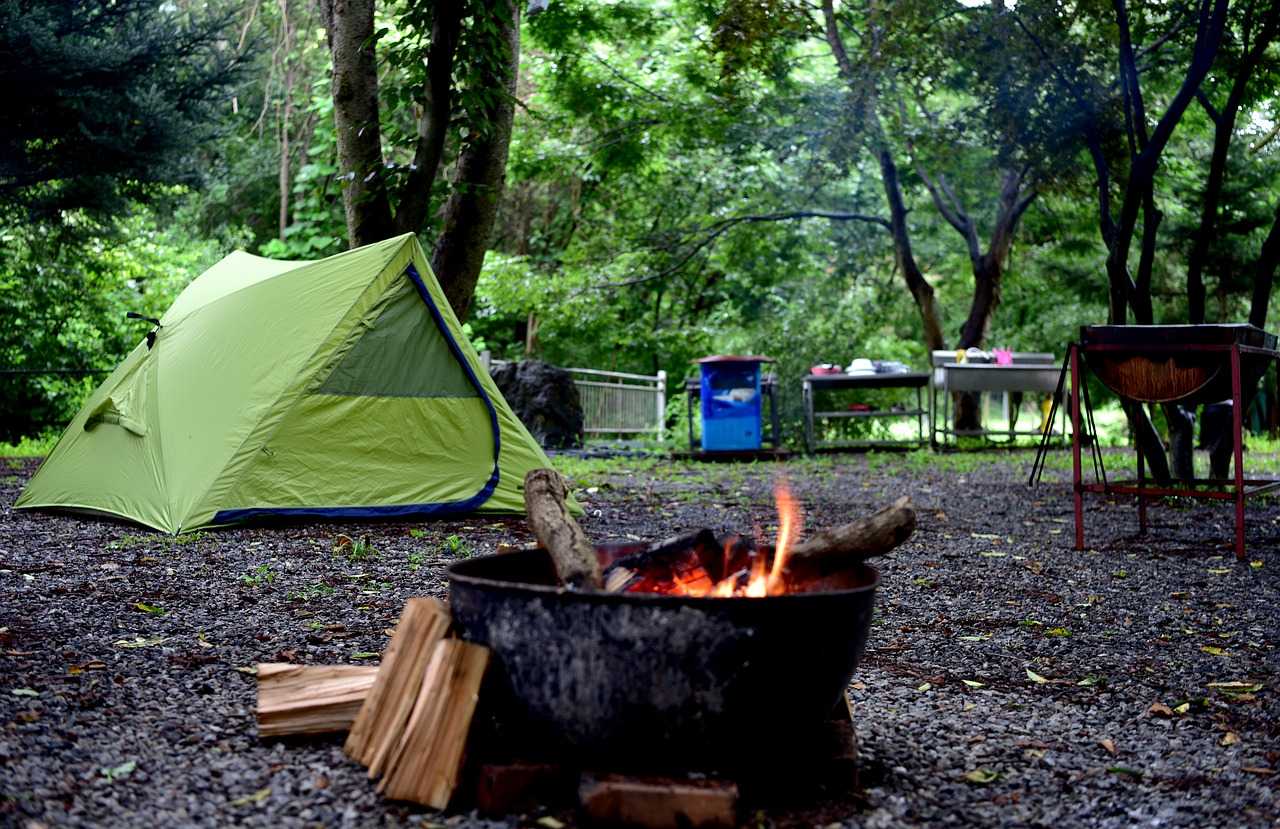Are tents fire resistant?
With so many ways to enjoy your time in the outdoors, fire safety may well be the last thing on your mind. However, as they are made from materials that provide little protection from flames, tents are incredibly susceptible to catching alight if the proper precautions aren’t taken.
With the following tips you’ll be well-prepared for all eventualities, including how to reduce your chances of starting a fire, and what to do in the unfortunate event that one breaks loose. Those of you wondering whether fire-retardant tents do much to dampen the flames can also find answers here.

Are tents fire resistant?
The bottom line is that no tent fabric is completely fireproof. Although fire-retardant tents will offer some slight resistance against the flames, any tent will catch fire if it is exposed to sparks or flames. Once your tent starts to burn, the fire will take hold and spread very quickly.
What is a fire-retardant tent?
A fire-retardant tent isn’t completely fireproof, but it does offer some extra protection. They’re likely to be more resistant to stray sparks from nearby firepits, but the main benefit of a fire-retardant tent is that it’ll give you more time to evacuate in an emergency. This is because fire-retardant tents are treated with chemicals that are designed to slow down the spread of a fire.
Fire safety precautions when camping in a tent
1. Don’t light candles in your tent.
As romantic as a candlelit evening under the canvas may sound, it’s not worth the risk. A candle is easily knocked over and your tent’s fabric will quickly catch fire.
2. Set up firepits in a separate area to your pitch.
You’ll want to keep any naked flames a good way away from areas with tents so that there’s no risk of the fire spreading to your tent. Avoid areas with long grass or other greenery that could easily catch fire, and ensure that there's a gap of at least five to 10 metres between your fire and any tents.
3. Leave space between your tent and the neighbouring pitches.
Fire spreads, so keeping plenty of space (at least five to 10 metres) between adjacent pitches will help to protect your own patch in the unfortunate event that a fire takes hold in one of the neighbouring tents.
4. Avoid cooking in your tent.
Don’t be tempted to use devices such as disposable barbecues, grills or stoves inside your tent. These emit heat and they’re often powered by fuel, so they’re more prone to catching alight when you least expect it.
5. Avoid using heaters and lanterns that use fuel.
Battery-powered heaters and lanterns are safer and just as effective as their fuel-burning alternatives.
6. Store any flammable liquids or gas cylinders outside of your tent.
Alcohol, aerosols, gas cylinders and hand sanitisers are all flammable, so storing these items in your car or outside of your tent will better protect your belongings from fire.
7. Don’t smoke in or around your tent.
Many campsites will have a cigarette ban or a dedicated place to smoke, and there’s a reason why. Sparks from cigarettes or cigarette ends that haven’t been disposed of properly can easily start a fire.
What to do if your tent catches fire
1. Evacuate the tent immediately.
A tent can go up in flames in less than a minute, so the first thing to do is evacuate everyone from your tent right away. Although you might be tempted to grab belongings on the way out, it’s best to leave them where they are and get out.
2. Evacuate the surrounding tents.
Raise the alarm and make sure that all the surrounding tents are evacuated.
3. Locate a fire extinguisher or a fire bucket.
Prevention is better than cure, but if a fire does start, it’s a good idea to be prepared. The most effective solution is a fire extinguisher. Many campsites will have one handy, so check with the site owners to find out where it’s located when you arrive.
Another option is keeping a fire bucket filled with sand or water right outside of your tent. That way, you’ll be able to douse any flames quickly.
4. Call the emergency fire services.
Remember to provide the call handler with your exact location, especially if you’re camping in a remote spot. A helpful app to download before you set off is what3words, which will give you an exact location that you can feed back to the emergency services, so they’ll know exactly where to find you.
If you don’t have any signal on your mobile phone, you’ll need to ask around until you find someone with a signal. Otherwise, it might help to locate the nearest landline or phone box to make the call.
With safety sorted, you’ll be set to get started on learning how to build a campfire in seven easy steps or move on to ticking off all the essential items on the ultimate camping checklist.